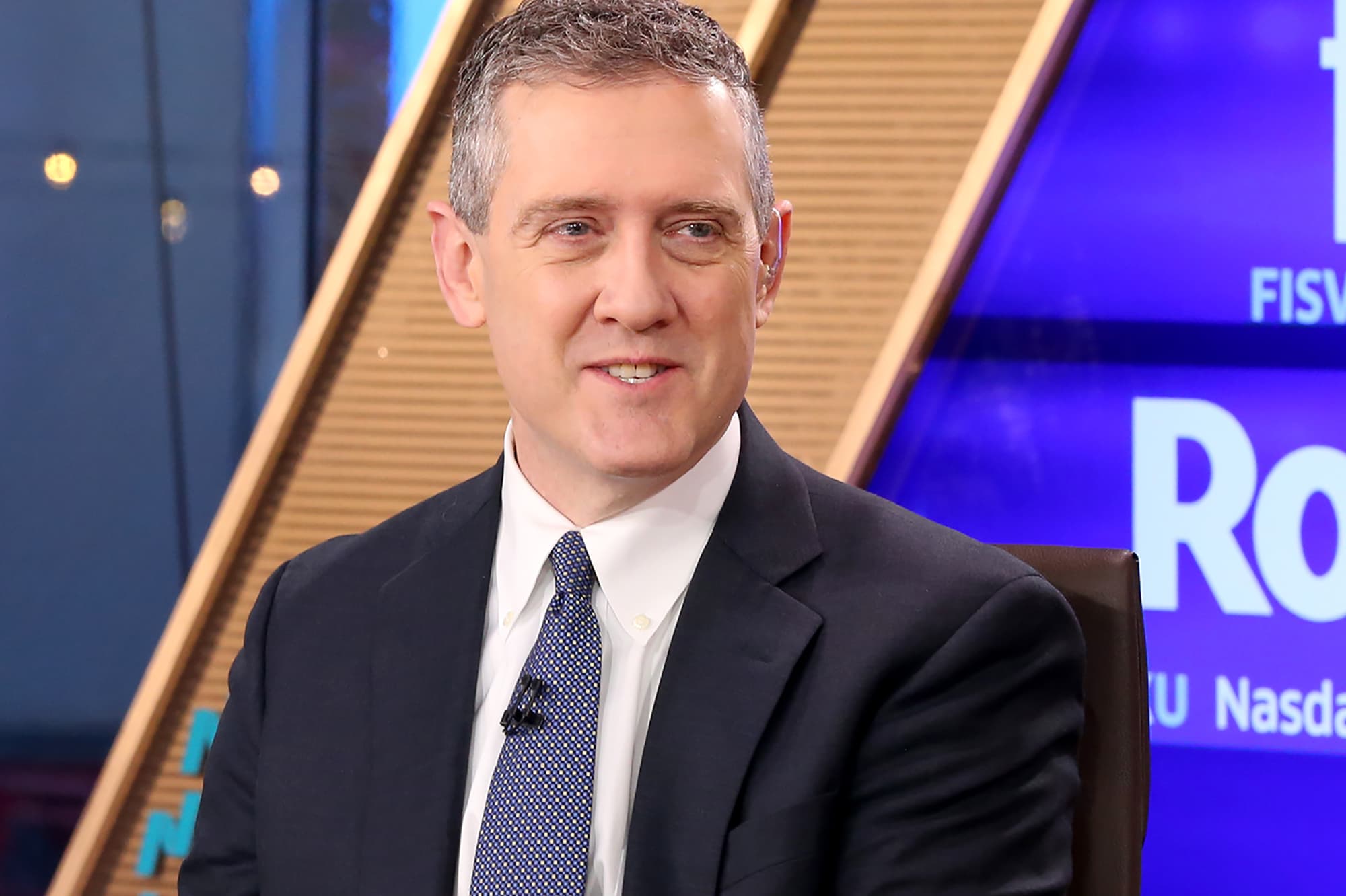Fed’s Bullard says bond purchases should be tapered quickly in case rate hikes are needed

St. Louis Federal Reserve President James Bullard advocated Tuesday for the central bank to be aggressive as it starts winding down its monthly bond-buying program in case inflation becomes a larger problem.
In a CNBC interview, the Fed official said he thinks it’s a 50-50 chance that the current inflation pressures are transitory, so policymakers have to be ready.
The Fed is largely expected to announce next month it will begin tapering minimum $120 billion a month asset purchase program, with a target date probably by mid-2022.
Bullard said he’d like to see more faster action.
“I’d support starting the taper in November,” he said on “Closing Bell.” “I’ve been advocating trying to get finished with the taper process by the end of the first quarter next year because I want to be in a position to react to possible upside risks to inflation next year as we try to move out of this pandemic.”
Fed officials say they’d prefer to have the tapering finished before rate hikes start.
The remarks come the same day that the International Monetary Fund cautioned that inflation could persist longer than expected. In doing so, the IMF advised central banks to come up with contingency plans to tighten policy should that be the case.
Bullard said he is optimistic the economy will growth strongly this year into next, even though he joined his fellow policymakers in marking down their 2021 U.S. economic growth outlook.
The Fed has stressed that even if it starts tapering this year, that shouldn’t be considered a sign about looming interest rate hikes. Officials have said they believe the Fed has met its inflation mandate of 2% growth, but that it’s still some distance away from its goal of full and inclusive employment that would trigger a rate hike.
“There’s no reason for us to commit one way or another at this point,” Bullard said. “I just want to be in a position in case we have to move sooner that we’re able to do so next year in the spring or summer if we have to do so.”
Some of the more hawkish Fed members — those who favor tighter policy –—have raised questions about the Fed narrative that inflation is transitory. Earlier in the day, Atlanta Fed President Raphael Bostic said he doesn’t even want workers at his office to use the term, preferring instead “episodic” to describe current conditions.
Bullard also has raised doubts about the theory that the inflation run is being caused primarily by supply chain problems.
“A supply shock alone cannot cause inflation,” he said. “A supply shock being accommodated by very easy monetary policy, it’s those two things that lead to the inflation.”
Still, he said he thinks the U.S. economy is in a good place and doesn’t not believe it is seeing 1970s-style stagflation, or inflation with negative growth.
“The probability of recession is exceptionally low at this point,” he said.
Become a smarter investor with CNBC Pro.
Get stock picks, analyst calls, exclusive interviews and access to CNBC TV.
Sign up to start a free trial today.




